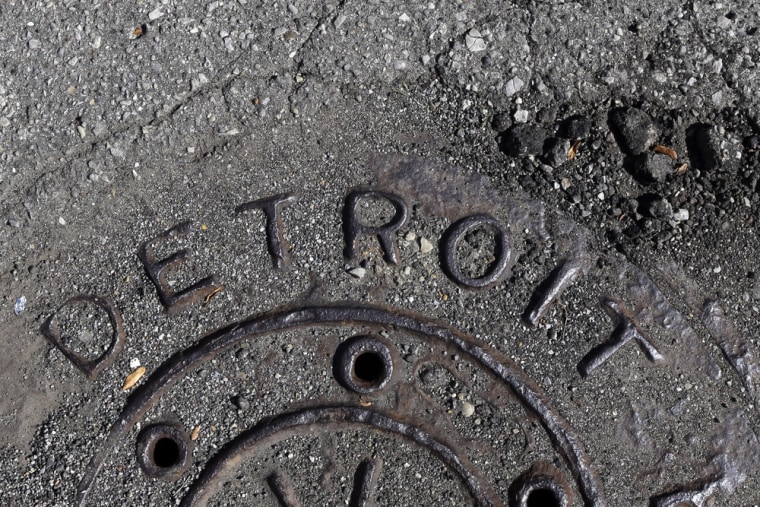Detroit is eligible to file for the largest municipal bankruptcy in U.S. history, a judge ruled Tuesday, underscoring the city’s dire financial condition.
U.S. Bankruptcy Judge Steven Rhodes issued a verbal ruling which is expected to be followed by a written opinion later Tuesday.
"The city no longer has the resources to provide its citizens with basic police, fire and emergency services," Judge Rhodes said, ruling that Detroit, once the nation's fourth-largest city, "was and is insolvent."
The long-awaited decision sets up a bitter battle between the city’s finance officials and its unions, creditors and retirees, who expect deep cuts in pensions and sales of treasured city assets, such as its art collection, as part of the Chapter 9 process.
"It's a sad day for the people of Detroit," American Federation of State, County and Municipal Employees attorney Sharon Levine told CNBC's Scott Cohn in an interview outside the courthouse. She said the AFSCME filed an immediate appeal.
In the meantime, Detroit’s emergency financial manager, Kevyn Orr, is expected to proceed towards the city’s next major step: submitting a plan to adjust Detroit’s approximately $18 billion in debt. Judge Rhodes said he will not stay the bankruptcy proceedings in the wake of any possible appeals.
Orr, who had testified the city's current conditions are "unacceptable," released a statement praising the judge's ruling and pledging to "press ahead with the ongoing revitalization of Detroit."
Judge Rhodes read for 90 minutes from his 140-page ruling before issuing the court's decision.
His ruling listed the city's long litany of financial woes, including the loss of manufacturing jobs and population in recent decades.
"As of April 2013, about 48 percent of the city's street lights were not working," he said. "In 2012 the average police response time was 30 minutes; in 2013, 58 minutes; and the national average is 11 minutes."
There were a number of wrinkles in the judge's ruling. Among other things, Judge Rhodes said Detroit did not negotiate in "good faith" with the unions to whom the city owes money -- normally a prerequisite for allowing bankruptcy.
At the same time, he noted the obstinacy of the unions in the negotiation process saying that the city could not realistically negotiate with a "stone wall."
Rhodes' decision is a critical milestone. He said pensions, like any contract, can be cut, adding that a provision in the Michigan Constitution protecting public pensions isn't a bulletproof shield in a bankruptcy.
The city says pension funds are short by $3.5 billion. Anxious retirees drawing less than $20,000 a year have appeared in court and put an anguished face on the case. Despite his finding, Rhodes cautioned everyone that he won't automatically approve pension cuts that could be part of Detroit's eventual plan to get out of bankruptcy.
Orr, a bankruptcy expert, was appointed in March under a Michigan law that allows a governor to send a manager to distressed cities, townships or school districts. A manager has extraordinary powers to reshape local finances without interference from elected officials. But by July, Orr and Gov. Rick Snyder decided bankruptcy was Detroit's best option.
Detroit, a manufacturing hub that offered good-paying, blue-collar jobs, peaked at 1.8 million residents in 1950 but has lost more than a million since then. Tax revenue in a city that is larger in square miles than Manhattan, Boston and San Francisco combined can't reliably cover pensions, retiree health insurance and buckets of debt sold to keep the budget afloat.
Donors have written checks for new police cars and ambulances. A new agency has been created to revive tens of thousands of streetlights that are dim or simply broken after years of vandalism and mismanagement.
While downtown and Midtown are experiencing a rebirth, even apartments with few vacancies, many traditional neighborhoods are scarred with blight and burned-out bungalows.
Besides financial challenges, Detroit has an unflattering reputation as a dangerous place. In early November, five people were killed in two unrelated shootings just a few days apart. Police Chief James Craig, who arrived last summer, said he was almost carjacked in an unmarked car.
CNBC.com and CNBC's Scott Cohn contributed to this report, as did Reuters.
